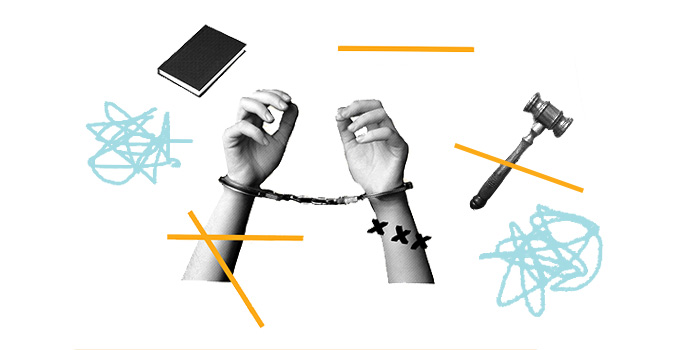
State v. Ochoa
What's at Stake
This case in the Texas Court of Criminal Appeals concerns the admissibility of a fourteen-year-old defendant’s confession following a Texas Ranger’s coercive interrogation. The ACLU’s State Supreme Court Initiative, alongside the ACLU of Texas, filed an amicus brief arguing that the defendant’s confession was induced by positive promises, and is inadmissible, particularly given his juvenile status and the circumstances of the interrogation. In November 2024, the Texas Court of Criminal Appeals (the highest court for criminal appeals in Texas) ruled that Holland's interrogation of Ochoa was unconstitutionally coercive in violation of Ochoa's Fourteenth Amendment due process rights.
Summary
Several mechanisms are in place to protect children from undue law enforcement coercion in Texas: The Texas Family Code, the Fifth and Fourteenth amendments of the U.S. Constitution, and article I, section 10 of the Texas Constitution. For a confession to be admissible under the Texas Code, a child must have knowingly, intelligently, and voluntarily waived their rights. However, factors like positive promises, the suspect’s age, and the totality of the circumstances that brought about the confession can make a child’s confession involuntary and thus inadmissible.
In 2018, a five-year-old in Texas went missing and was eventually found partially clothed and severely harmed. Appellant Emanuel Ochoa was fourteen at the time and living in the same household as this five-year-old. Ochoa was taken to a police station where Texas Ranger James Holland proceeded to question him for three hours. In this interrogation, Holland promised Ochoa he was not going to prison if he confessed, said he would help him through this, and called the crime “a bump in the road.” Ochoa eventually confessed to assaulting the child, and, using this confession, the trial court convicted and sentenced him to 55 years in prison.
Ochoa moved to suppress his confession, but the trial court denied this request. The Texas Court of Appeals affirmed the trial court’s order, ruling that Ochoa’s confession had been voluntary and was admissible because Holland did not make an unqualified promise to Ochoa.
The ACLU, alongside the ACLU of Texas, filed an amicus brief in April 2024 arguing the Court of Appeals decision should be reversed. The brief argues that the admission of Ochoa’s confession was incorrect for two reasons.
First, Holland’s tactics rendered Ochoa’s statements involuntary and thus inadmissible under the Texas Family Code, which requires a showing that “the child knowingly, intelligently, and voluntarily waive[d]” his rights. Here, the state cannot meet that standard because Holland flat-out told Ochoa he would not go to prison if he confessed.
Second, Ochoa’s confession was also involuntary under the Fifth and Fourteenth Amendments to the U.S. Constitution and article I, section 10, of the Texas Constitution. Far from requiring proof of an unequivocal or positive promise to render a confession involuntary, the constitutional tests look to the totality of the circumstances. Here, under the totality of the circumstances, Holland’s intense, sustained campaign to persuade a child that confessing would bring him help, not imprisonment, rendered the childe’s confession involuntary.
In November 2024, the Texas Court of Criminal Appeals (the highest court for criminal appeals in Texas) ruled that Holland's interrogation of Ochoa was unconstitutionally coercive in violation of Ochoa's Fourteenth Amendment due process rights. In its opinion, the Court considered Ochoa's age, Ranger Holland's conduct, and the misinformation provided by the Magistrate to rule that under the totality of the circumstances Ochoa's confession was involuntary. The Court then remanded the case to the trial court for a harm analysis.
Legal Documents
-
11/27/2024
Opinion -
04/11/2024
ACLU Amicus Brief -
03/12/2024
State Brief -
03/12/2024
Appellant Brief